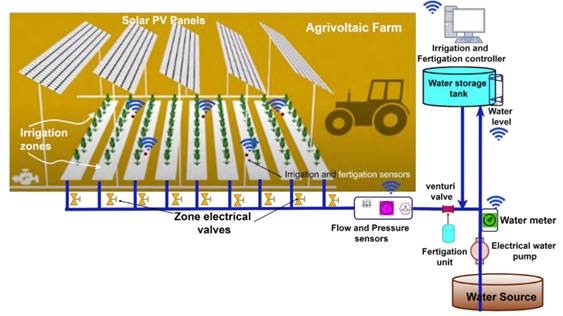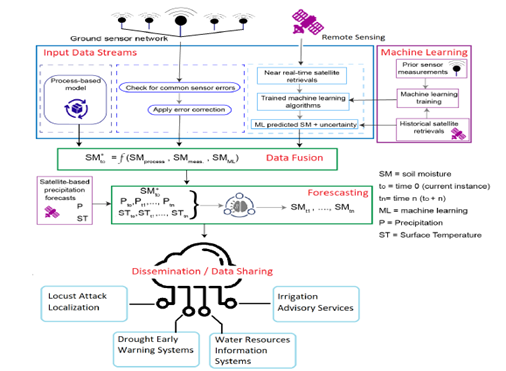Winners of the first Cohort 2023
The winners of the first cohort of the Khalid and Mussarrat Aziz Research Grants for Planet Earth are:
Dr. Nauman Zafar Butt - Rs. 2.0 million over two years
Dr. Abubakr Muhammad - Rs. 1.5 million over two years
Brief summaries of the funded proposals are given below:
Quantitative field assessment of agrivoltaic technology for food-energy-climate synergies
Dr. Nauman Zafar Butt 
Pakistan is ranked as the 5th most vulnerable country to climate change, with risks including extreme weather events, having profound effects on agriculture. Dr Nauman’s project aims to explore a technological solution for a worldwide grand challenge of a sustainable supply of energy, food, and water recourses under the pressure of climate change. Through agrivoltaic (AV) technology, the proposed solution is to deploy large-scale solar energy installations over lands, which are fertile for agriculture, without impacting ecosystems, biodiversity, and food production. The project will conduct quantitative food-energy-climate field studies on a small (10KW) capacity testbed in LUMS agricultural fields over the next couple of years. Dr Nauman and his team will develop precise instrumentation to measure the microclimate induced by the solar modules’ shading over crops, monitor growth patterns and yield the crops, and quantify synergies including water saving, solar efficiency enhancement, and drought/heat stress alleviation capability. The project will collaborate with existing centres at LUMS, like the Centre for Water Informatics & Technology (WIT), to achieve its goals. An integral part of this project will be to disseminate the results to policymakers, investors, and farmers, in order to create more sustainable economies for urban and rural communities.
Leveraging multi-source data fusion to build a multi-scale soil moisture monitoring network in Pakistan
Dr. Abubakr Muhammad

Climate change, combined with a lack of hydrologic data (information about water distribution and movement on and below the Earth’s surface), has made weather and water conditions in Pakistan highly unpredictable. This unpredictability makes it difficult to prepare for natural disasters such as floods and droughts, putting agricultural lands at risk. Dr. Abubakr Muhammad’s proposal aims to develop an innovative data fusion-based framework that would leverage multiple data streams to estimate soil moisture at a high resolution. The proposed framework integrated ground measurements, process-based mathematical modelling, and satellite observations-based machine learning predictions. For ground measurements, the Centre for Water Informatics & Technology (WIT) at LUMS has created and installed a network of cost-effective sensors that provide information on soil moisture and crop water deficiency to assist in making decisions on farms and estimate irrigation needs in the region. Mathematical models would provide a layer of process-based rationality which would help in filtering out erroneous sensor outputs. Machine learning algorithms will be trained to predict soil moisture using satellite observations and historical ground data. The framework will be critical for providing continuous, reliable soil moisture information to farmers in Pakistan.

